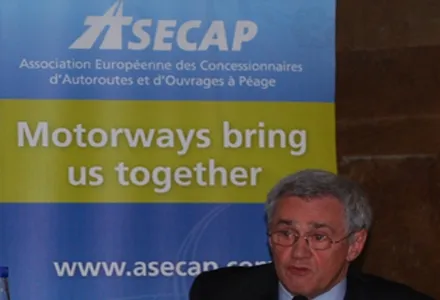ASECAP’s fourth annual Road Safety Event brought together industry experts to discuss best practice for tolled highway operators to further reduce road fatalities and injuries throughout the European Union.
February 21, 2012
Read time: 2 mins

The conference, ASECAP Toll Roads: a Safe Journey in Europe, was organised by ASECAP (European Association of Tolled Motorways, Bridges and Tunnels) in cooperation with the Greek national road association TEO.
The event demonstrated that road safety is a priority in relation to the “high quality service delivered by the tolled links to their users.”
The high safety levels of highways are commonly recognised and this was underlined by representatives from the European Parliament, the
Valuing the expertise and experience of the ASECAP members and the important role played by the tolling industry in improving the safety of every driver, EC director Enrico Grill Pasquarelli, said: “ASECAP members are putting road safety into practice in their daily operations,” and considered PPP (public-private partnerships) and earmarking of the revenues collected through road charging as the best models to further invest in safe infrastructures.
Yiannis Magriotis, Greek Deputy Minister for Infrastructures, Transport and Networks, recalled that infrastructures, managed successfully by concessions, lead to road safety and economic growth.
ASECAP’s members and other key stakeholders from Europe and Greece also presented how tolled motorways are already significantly safer compared to the secondary roads and shared their best practices regarding safety campaigns and technical improvements.
In addition, they focused on how the motorways will keep working towards a continuous reduction of fatalities and severe injuries on their network until reaching the vision of zero accidents for all users.







